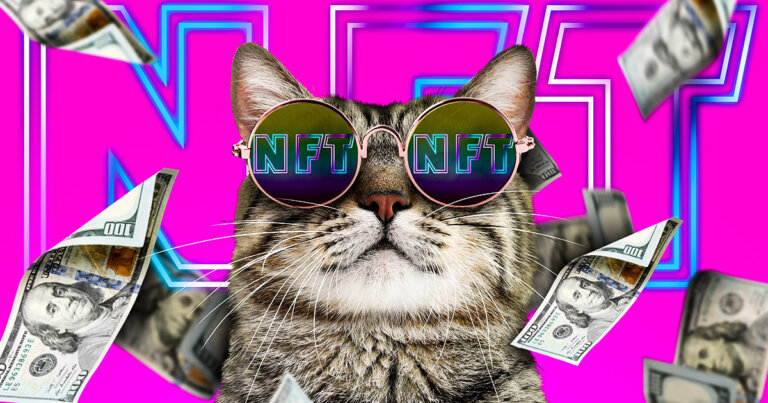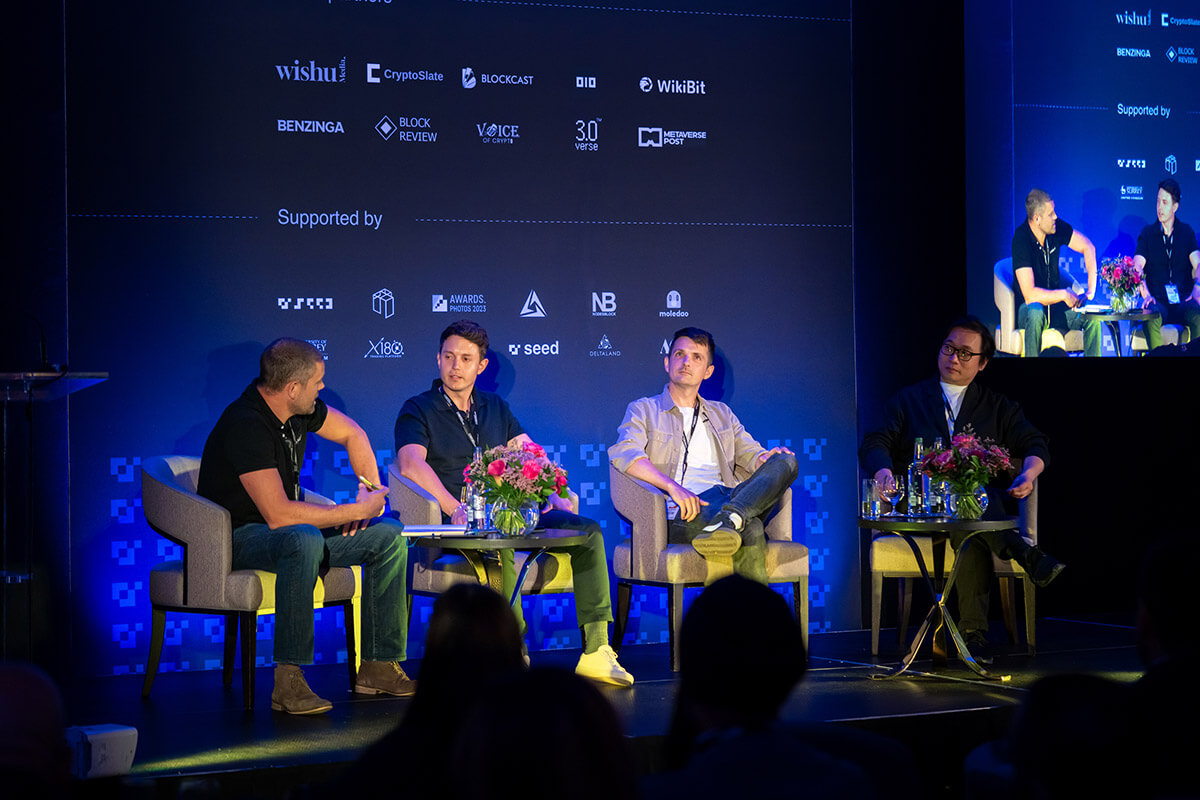 NFTs and super brands: A deep dive into web3
NFTs and super brands: A deep dive into web3 NFTs and super brands: A deep dive into web3
Experts weigh in on the potential of NFTs in enhancing brands.

Cover art/illustration via CryptoSlate. Image includes combined content which may include AI-generated content.
In a world where technology evolves at lightning speed, it’s no surprise that the business landscape is constantly shifting. One of the latest and most talked-about developments is the rise of NFTs (Non-Fungible Tokens) and their integration into the strategies of “super brands.” To shed light on this topic, a panel discussion featuring experts from various fields share insights on the complexities of NFT adoption among super brands.
Super brands are more than just products or services; they are cultural phenomena. These brands have transcended their industries to become status, identity, and aspiration symbols. Their power is not limited to marketing; it extends to influencing consumer behavior, market trends, and even social movements. The bond between super brands and their fans is built on trust, shared values, and a sense of belonging.

The Quest for Fan Engagement
Dan Mitchell, representing Oracle Red Bull Racing, introduced himself as the Web3 lead. Before entering the world of cryptocurrency and Web3, he had worked extensively in advertising, collaborating with global brands on brand strategy and advertising campaigns. Dan discussed how the Red Bull Racing team utilizes Web3 technology to engage racing fans, emphasizing the importance of putting fans at the core of their strategy.
Formula 1 teams understand the hunger of their fans. The desire to feel emotionally connected to the team, to access exclusive content, and to engage with their favorite drivers is palpable. However, with most fans unable to attend races in person, finding innovative ways to bridge the gap is the challenge.
The question that often arises is, “How do we best use Web3 technology to provide fans with emotionally engaging experiences?” Whether it’s about getting closer to the drivers, accessing team principals like Christian Horner, or offering exclusive perks through loyalty reward programs, the potential of Web3 in enhancing fan engagement is vast.
Dan explained:
“We are using Web3 technologies to engage with our fans. It has been a unique journey for our side, and thanks to Bybit, we understand how to manage Web3 a lot easier.”
The Challenge of NFTs and Utility
As the discussion at the NFT conference suggests, Web3 technology, particularly NFTs, should be invisible to the end-user. It’s not about slapping an “NFT” label on a product or experience and expecting it to succeed. The true success lies in crafting an exceptional underlying experience for customers.
Anndy Lian, a book author and licensed fund manager in Singapore, shared his expertise. He discussed the rapid evolution of NFTs, emphasizing their potential as a gateway to larger communities and technology adoption. Andy also highlighted the importance of utility tokens and the value of creating meaningful user experiences.
“NFT gaming is more than just owning a digital sword; it’s about the experience and usefulness it provides within the game. Formula 1 discovered this when they first experimented with NFTs by offering digital helmets and race suits without any clear purpose. Fans were left wondering what they could do with these digital assets. Our partnership with Oracle Red Bull Racing on the newly launched Velocity Series addresses these concerns. We collaborate with successful NFT artists to incorporate racing characteristics into the art. In this case, the value and usefulness are in the art itself, not just as an NFT, as Anndy stated.”
Learning from Mistakes and Customer-Centric Approach
Liverpool Football Club’s early NFT launch serves as a cautionary tale. They released NFTs without a clear utility, mirroring traditional merchandise. However, they understood their audience better when they partnered with Meta for NFT-based clothing. They used terminology their fans understood, focusing on “collectible avatars” and “coins” instead of complex NFT jargon. This approach led to a highly successful project, with three million wallets opened on the first launch.
Reddit, another big brand, ventured into Web3 by offering customizable avatars without emphasizing NFTs, but instead focused on user identity and opinions. This strategy resonated with their audience and resulted in significant success.
The above points were highlighted by Tom Downing, representing the British Interactive Media Association. He highlighted his role in educating brands and businesses about Web3, and he mentioned a Web3 education business called “Roster3,” which offers an accredited mini-MBA in Web3.
The Reality Check
However, amidst all the excitement, it’s essential to remember that not every Web3 venture is groundbreaking. Some may still appear gimmicky. The key is to offer a unique technology that brings transparency, accountability, and genuine value to users. In the case of NFTs, simply replacing traditional offerings with digital versions won’t suffice.
Ben Radcliffe, representing Amber Group, a crypto-native financial services firm, echoed Anndy’s point. He emphasized the need for brands to understand the “why” behind their Web3 initiatives and how these initiatives can create value for users. He has also highlighted the challenges and opportunities for super brands entering the Web3 space. He emphasized the need for brands to have a legitimate reason for adopting Web3 technology beyond just chasing the latest trend.
Conclusion
The potential future directions for super brands in the Web3 space is positive. The possible expansion areas, include NFT ticketing, fan-based tokens, and immersive experiences in the metaverse. Andy emphasized that brands should focus on delivering value and experiences to users with a long-term perspective.
As the panel discussion concluded, it became clear that super brands are taking significant steps into the Web3 world. While NFTs provide exciting opportunities for fan engagement and revenue generation, brands must be strategic.
The success of Web3 initiatives hinges on providing genuine value and creating immersive experiences for users. In this fast-evolving landscape, the future of super brands in Web3 holds the promise of exciting developments and innovations.
Web3wave Summit was organized on the 3rd of August in London. Experts from Binance, Bybit, Coinbase, Mastercard, Bitfinex, Huobi, Oxford University, and many others were present. Her Excellency Uddin, Member of the House of Lords, gave a keynote speech on her vision for Web3 and Metaverses. The event was supported by Benzinga, Coingecko, CryptoSlate, Seed.Photo, Blockcast.cc, Blockreview, Followin, Moledao, AOI, Custodiy, Bitverse, Riple, Tusima, Pollen Defi and Wishu Media etc.



 CoinGlass
CoinGlass 


 Farside Investors
Farside Investors 















































































